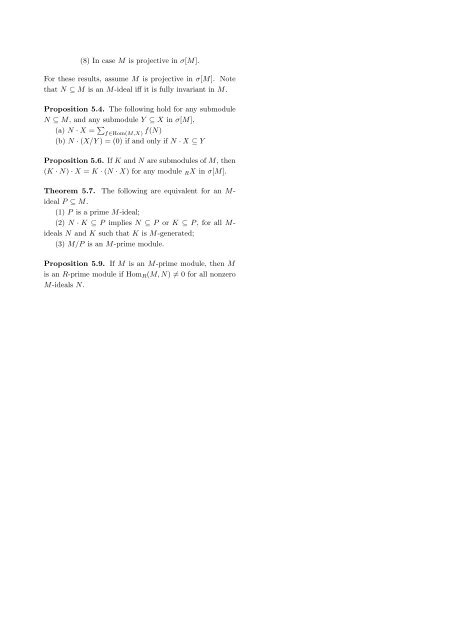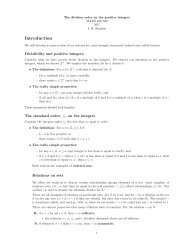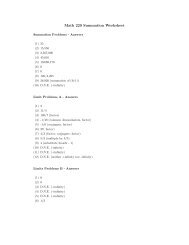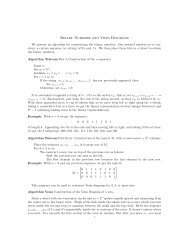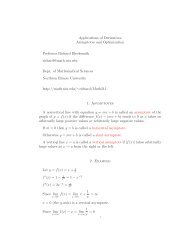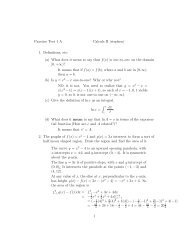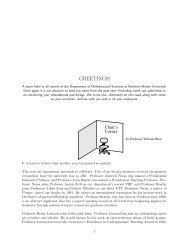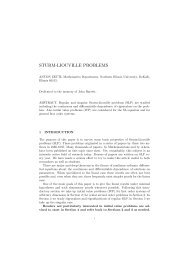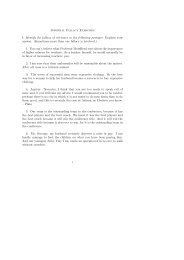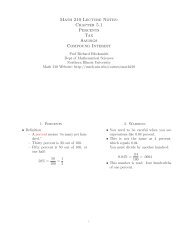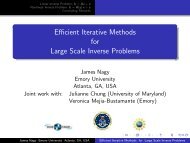m-injective modules and prime m-ideals - Department of ...
m-injective modules and prime m-ideals - Department of ...
m-injective modules and prime m-ideals - Department of ...
You also want an ePaper? Increase the reach of your titles
YUMPU automatically turns print PDFs into web optimized ePapers that Google loves.
(8) In case M is projective in σ[M].For these results, assume M is projective in σ[M]. Notethat N ⊆ M is an M-ideal iff it is fully invariant in M.Proposition 5.4. The following hold for any submoduleN ⊆ M, <strong>and</strong> any submodule Y ⊆ X in σ[M],(a) N · X = ∑ f∈Hom(M,X) f(N)(b) N · (X/Y ) = (0) if <strong>and</strong> only if N · X ⊆ YProposition 5.6. If K <strong>and</strong> N are sub<strong>modules</strong> <strong>of</strong> M, then(K · N) · X = K · (N · X) for any module R X in σ[M].Theorem 5.7. The following are equivalent for an M-ideal P ⊆ M.(1) P is a <strong>prime</strong> M-ideal;(2) N · K ⊆ P implies N ⊆ P or K ⊆ P , for all M-<strong>ideals</strong> N <strong>and</strong> K such that K is M-generated;(3) M/P is an M-<strong>prime</strong> module.Proposition 5.9. If M is an M-<strong>prime</strong> module, then Mis an R-<strong>prime</strong> module if Hom R (M, N) ≠ 0 for all nonzeroM-<strong>ideals</strong> N.


